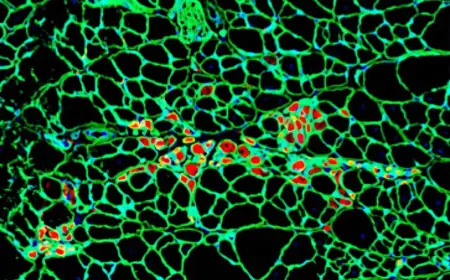The Importance of Sleep in a Child’s Healthy Development

Child Sleep
What happens in the body during sleep?
When a child is sleeping, important processes occur in their body:
-
Production of certain hormones becomes more active,
-
Body organs rest,
-
Information seen and heard during the day is processed in the brain,
-
The most important information is stored in long-term memory.
For all these processes to work properly, sleep itself must be healthy and regular. Otherwise, it is clear that it will negatively affect the child’s health. Therefore, children should be taught healthy sleep habits from the very first days of life and provided with the proper conditions for it.
Phases of a child’s sleep
A child’s sleep, like adults’, is divided into two phases: light sleep and deep sleep.
-
Light sleep is characterized by rapid eye movement. During this phase, the brain is active, new information is stored, and directed where needed. This phase lasts longer in children than in adults.
-
Deep sleep is when eye movement stops, and it is slow-wave sleep. During this phase:
-
New neural connections form in the growing body,
-
Nerve fibers regenerate and heal.
It is difficult to wake a child during deep sleep. If woken, the child may have trouble concentrating, which negatively affects their psychology. In adults, the sleep phases alternate evenly, but in children, deep sleep is much shorter.
-
The importance of daytime sleep
Besides nighttime sleep, daytime sleep is important for children as well. It helps relieve stress and fatigue that can arise from school, daycare, or other activities.
During the day, a child’s sleep varies:
-
Morning sleep is a continuation of nighttime sleep. During this phase, the child dreams a lot, and the brain processes and stores new concepts.
-
Afternoon sleep is deeper than morning sleep and supports growth, especially since the body’s growing phase occurs mostly during slow-wave sleep.
How to improve a child’s sleep?
Healthy sleep is closely linked to a healthy lifestyle, habits, and overall body health. If you can establish a consistent sleep schedule, waking time, and daily routine for your child, you can reduce stress, strengthen immunity, and ensure harmonious development of all organs.
Key rules for quality sleep:
-
The room should be dark
Biologically, we all sleep when it gets dark. Our brain senses darkness through the visual system and then starts producing the sleep hormone melatonin.
To improve melatonin activity, the room must be dark.
If the child is afraid of the dark, a small night light can be used but should be turned off once the child falls asleep. -
Put the child to bed on time
The best time to put a child to bed is between 8:00 PM and 10:00 PM.
During this time, the nervous system rests and recovers best. If the child does not sleep on time, the nervous system weakens, leading to decreased immunity and health. -
Prepare the child before sleep
A child’s psyche is not ready for sudden changes.
Physical activity after 8 PM slows melatonin production.
Abruptly switching from playtime to bedtime can hinder relaxation and falling asleep.
Evening sleep recommendations after daily activities:
-
Walk in fresh air 1–2 hours before bedtime.
-
Warm herbal or bubble bath.
-
Soft music or pleasant thoughts.
-
Reading calming stories.
-
Singing lullabies.
-
Sleeping with soft toys.
General conditions for good sleep:
-
No strong smells in the bedroom.
-
Maintain optimal temperature and humidity (to avoid drying out the respiratory tract).
-
Bright lights, TV, loud music, or running electrical appliances can disrupt sleep.
-
Wake the child gently and softly.
Evening meals
Not only the brain but all organs, including the digestive system, need rest in the evening. Therefore:
-
Dinner should consist of easily digestible, non-irritating foods.
-
If the child is hungry, they won’t be able to fall asleep—ensure they are well-fed.
-
Limit liquids two hours before bedtime.
Quality sleep is one of the main factors for a child’s health, development, and emotional stability. Parents should pay special attention to this and help establish healthy sleep habits from an early age.



























